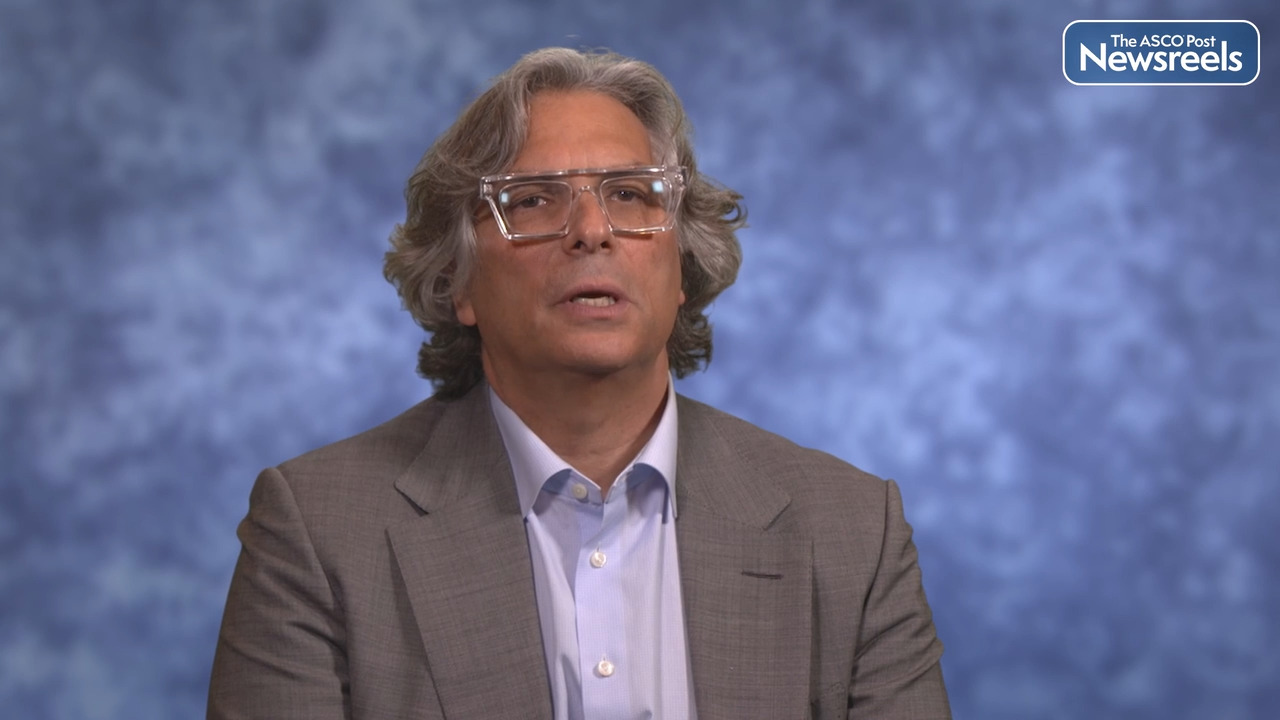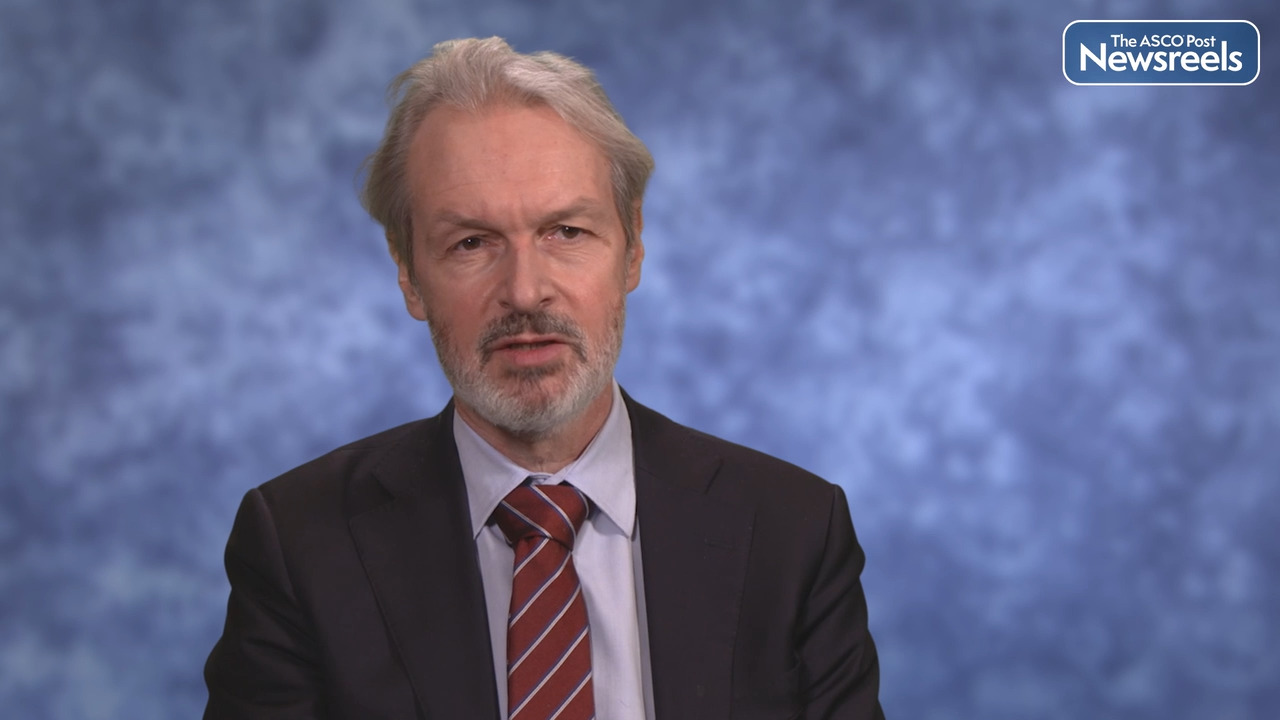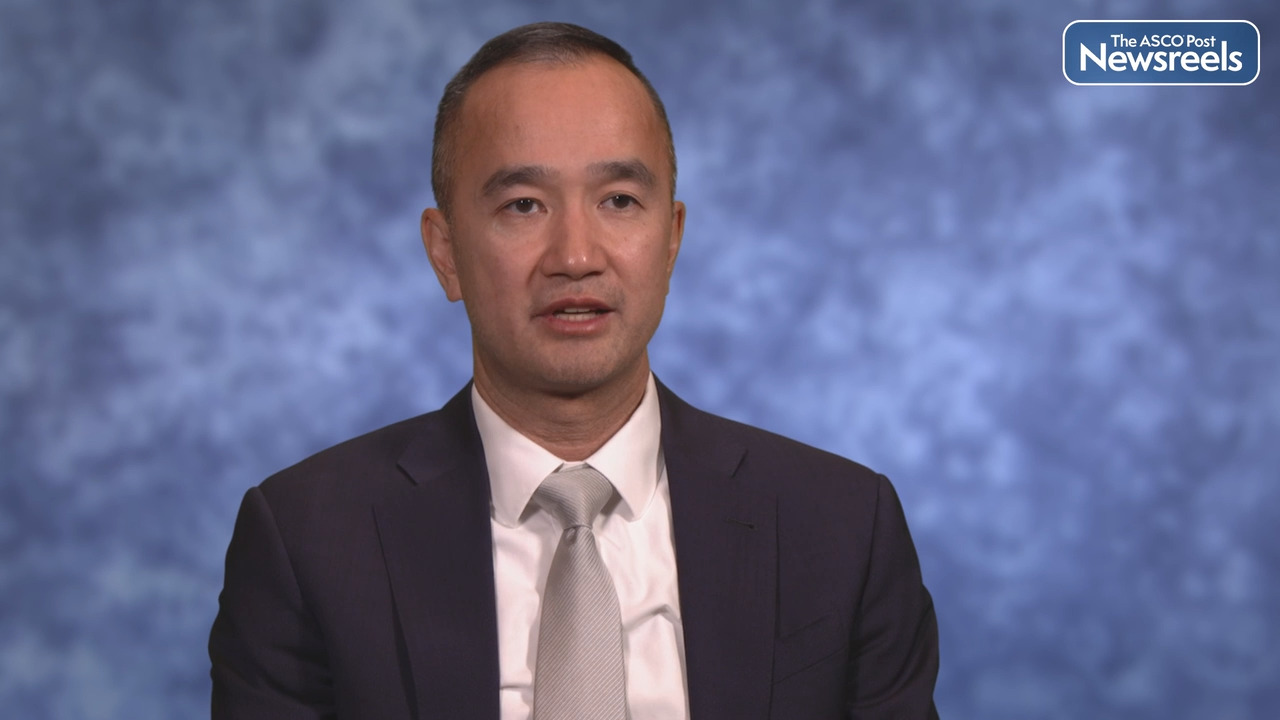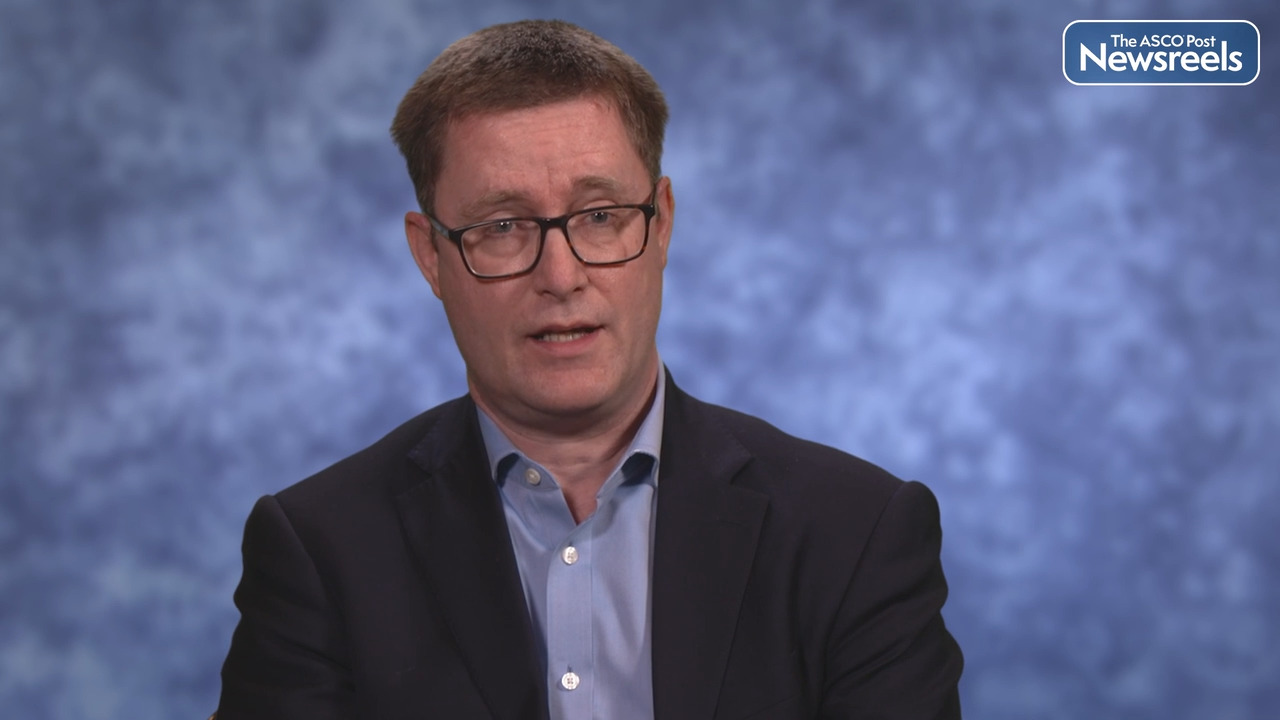Jonathan E. Rosenberg, MD, on Urothelial Cancer: New Conclusions About Durvalumab Plus Olaparib
2022 ASCO Genitourinary Cancers Symposium
Jonathan E. Rosenberg, MD, of Memorial Sloan Kettering Cancer Center, discusses phase II findings from the BAYOU trial, which studied durvalumab in combination with olaparib for first-line treatment of platinum-ineligible patients with unresectable, stage IV urothelial carcinoma. Because secondary analyses indicated a potential progression-free survival benefit with this combination, there may be a role for PARP inhibitors in the treatment of advanced disease with homologous recombination repair mutation (Abstract 437).
The ASCO Post Staff
Neil E. Fleshner, MD, MPH, of the Princess Margaret Cancer Centre, discusses phase II results from the ACDC-RP trial, which indicate a significant tumor response to neoadjuvant abiraterone acetate plus prednisone and leuprolide, with or without cabazitaxel, in patients with high-risk prostate cancer. Those who exhibited either a complete response or minimal residual disease experienced higher rates of progression-free survival. According to Dr. Fleshner, genomic efforts are underway to determine predictors of response.
The ASCO Post Staff
Axel Bex, MD, PhD, of The Netherlands Cancer Institute, discusses an efficacy, safety, and biomarker analysis of neoadjuvant avelumab and axitinib in patients with localized renal cell carcinoma who are at high risk of relapse after nephrectomy (Abstract 289).
The ASCO Post Staff
Kim Nguyen Chi, MD, of the University of British Columbia, BC Cancer-Vancouver Center, discusses first phase III results from the MAGNITUDE study, which explored the use of the PARP inhibitor niraparib with abiraterone acetate and prednisone as first-line therapy in patients with metastatic castration-resistant prostate cancer with and without homologous recombination repair gene alterations (Abstract 12).
The ASCO Post Staff
Petros Grivas, MD, PhD, of the University of Washington and Fred Hutchinson Cancer Research Center, discusses results from Cohort 3 of the TROPHY-U-01 study, which assessed sacituzumab govitecan-hziy in combination with pembrolizumab in patients with metastatic urothelial cancer who experienced disease progression after platinum-based regimens (Abstract 434).
The ASCO Post Staff
Simon J. Crabb, PhD, MBBS, of the Southampton Experimental Cancer Medicine Centre, discusses data from the ATLANTIS trial, in which the authors hypothesized that switch maintenance therapy with the PARP inhibitor rucaparib, in patients who have derived clinical benefit from first-line chemotherapy, may improve outcomes for those with metastatic urothelial carcinoma that harbored a composite biomarker for DNA repair deficiency (Abstract 436).





